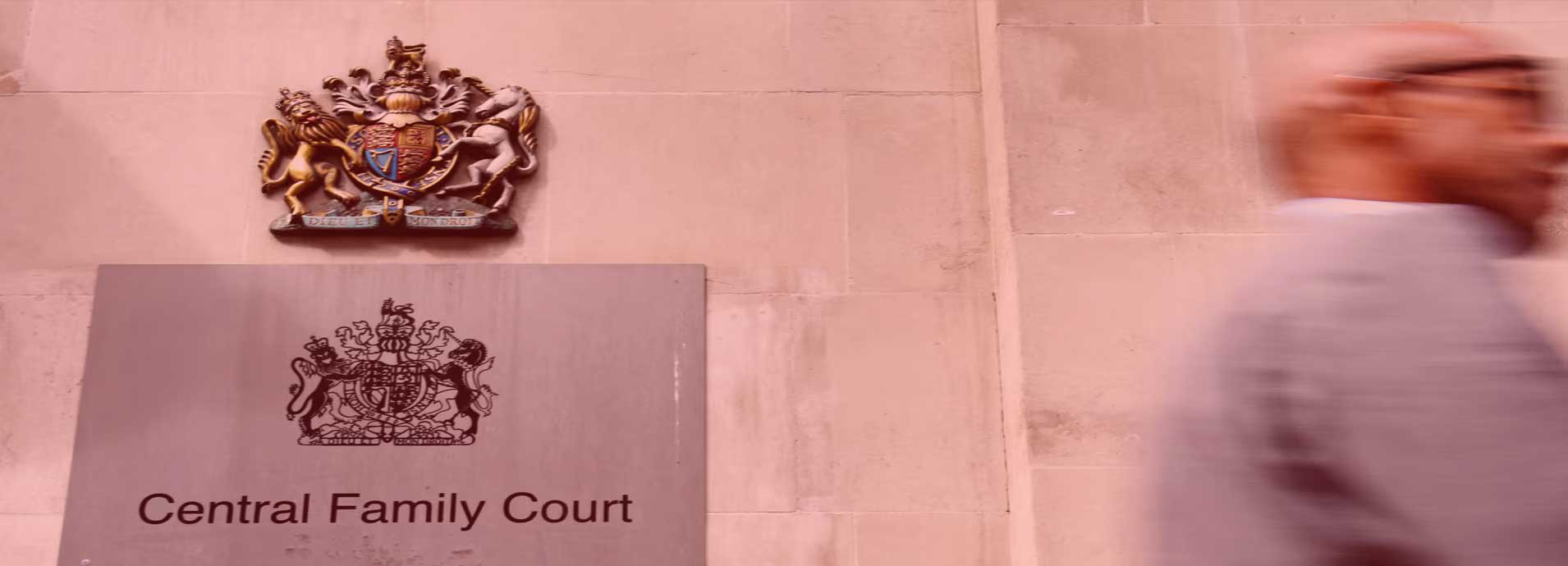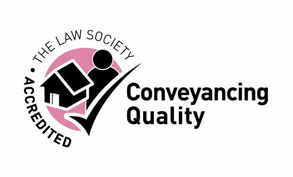Author: Linda Baines
Investing in a commercial premises
Key things to think about when investing in a commercial premises
For many businesses the acquisition of a premises will be a significant financial investment and key to growth. However, the acquisition of a premises can be a time-intensive and lengthy process that requires you to do your due diligence, research and make smart investment decisions.
Here are some of the most important things that a buyer should be thinking about to achieve the best possible position for the investment:
Type of Property – Is the commercial property you are going to buy a leasehold of freehold?
This is really important to know as there are some key differences to be considered.
Freehold – If you own the freehold of the property this means you will own the whole of the premises and are free to use, alter or sub-lease part or the whole of the property as you wish (subject to any lender and / or planning authority consents). As a freehold owner, you will be responsible for all maintenance, repair and insurance of the property together with any additional costs that may become due from use of any private roads or shared carparks with adjoining neighbours.
However, owning a freehold will likely mean a large initial outlay for your business in respect of the purchase price.
Leasehold – If you own the leasehold of a property you will occupy the whole (or part) of a property under a lease for a contractual term. As a leasehold occupier of part you will only be responsible for the repair and maintenance of the part of the property you occupy with the Landlord responsible for the repair and maintenance of the exterior and remaining parts of the property (and such costs will most likely be recovered via a service charge).
The length of each lease can be negotiated to reflect the wishes of both parties and can also include assignment clauses and break clauses to protect you should you wish to terminate or transfer your lease at an earlier stage. Leases can therefore provide businesses with greater flexibility in their premises arrangements. The lease will govern any subletting and alterations.
It is important to consider which type of ownership would be more suitable for you or your business needs. For example, you may wish to consider if a short term lease of commercial property would be a better option in the first instance, particularly if your business is a new start-up.
Having decided that purchasing a property is the most suitable route for you, you may want to consider instructing a Buyer’s Agent. A Buying Agent can assist with negotiating key commercial terms and submitting the offers on your behalf. They can also provide advice on the suitability of the property for your needs.
Location
Location is key for commercial property not only in respect of whether a property is suitable for you or your prospective tenant but also in respect of external factors such as whether the property or the vicinity is prone to flooding, or is subject to planning and conservation designations or other restraints which may affect your intended use. Most of these factors will be picked up in the property searches.
Transport links and / or car parking to support both employee and client access should be properly considered. It is also prudent to consider the services available at the property and whether any additional works will be required to install or update services which are insufficient or unavailable.
Survey
Just as an individual may undertake a survey for residential property before they move house, it is always advisable for a prospective purchaser to commission a survey before proceeding with the purchase of a commercial property.
A survey would identify any potential issues with the premises, whether you are acquiring a freehold or leasehold interest in the property. This can be potentially beneficial if you are taking on a full repairing and insuring lease. The results of a survey can ensure that any issues are dealt with post-completion or may lead to a re-negotiation in price. Further, the results may persuade a landlord to accept a tenant’s repairing liability is limited by way of a schedule of condition. The schedule will document any specific defects that will fall outside of the tenant’s repair covenant.
Purchasing Entity
Having found the right property, you will want to consider how the property is to be owned. Buying a commercial property as an individual or partnership is commonplace but there may be reasons why buying a property as a limited company, limited liability partnership or through a SIPP may be preferable: speaking to your accountant or tax advisor is advisable before committing to buy the property.
Option to Tax and VAT Position
Tax plays an important consideration in commercial transactions. The default position for the sale of land and buildings is that they are exempt from VAT meaning that no VAT is payable by the buyer in addition to the purchase price. However, a Seller may have opted to tax the land or property. Once someone has opted to tax land or buildings then all supplies (including a freehold sale or leasing the property) would usually be subject to VAT on a standard rated basis. This is not usually a problem if the purchaser is themselves VAT registered.
There are circumstances where VAT will not be payable in addition to the purchase price where there is a valid option to tax and your accountant or tax advisor should be able to provide advice on whether these exceptions apply.
You may wish to check the VAT position in respect of the property before proceeding with any purchase.
It is also important to remember that SDLT is calculated and payable on both the purchase price and any applicable VAT on the purchase price.
Searches
Searches are typically commissioned in advance of exchange of contracts to ensure as much information as possible about the property is gathered and enquiries raised accordingly. A buyer is free to decide if they wish to commission searches unless the purchase is subject to finance in which case a lender will require that searches are commissioned (to include an environmental search, local search, drainage and water, highways and chancel).
SDLT
In addition to the VAT implications of a purchase, Stamp Duty Land Tax (SDLT) is payable on non-residential property where the purchase price (also referred to as ‘consideration’) paid is £150,000 or more. You may wish to do a quick calculation to give an idea of additional purchase costs or, we can do this on your behalf.
Service Charge
It is a common misconception that when buying a freehold property that there will never be a service charge payable as it is often misunderstood to be applicable to leasehold property only. There are circumstances where a freehold property, such as those on an estate, may be liable to pay an estate or other service charge for maintenance of the common parts. It is worth checking with the agent when negotiating the purchase to see if there are any estate or other service charges payable.
Financing
There are numerous options available when considering how best to finance any proposed property acquisition. A mortgage broker can often advise you on the most appropriate mortgage to suit your relative needs in line with your proposed timeline and objectives.
Alternatively, you may wish to consider raising capital through investors or other third-party funding. Investors may be happy to accept shares in the company or a profit percentage in return for their initial investment, this may benefit your business given that the capital, which would otherwise have been expended into the property, can be used elsewhere.
Each transaction is unique. Our team has experience in a wide range of sectors including offices, retail, industrial and leisure.
Please get in touch if you feel that we can assist you in purchasing your first commercial property or, if you are thinking of adding another property to your portfolio.
Secure your assets with a Will
Making sure your possessions are safe with a Will is very important for looking after people you care about when you die. In the UK, having a Will can prevent misunderstandings, arguments, and possible court fights between family members. It let you decide how your belongings are shared & who get them. In this blog post, we talk about why having a Will is important, the steps to make one, and how it can give comfort for you and your loved ones.
Why Having a Will is Important
Having a Will is important for many reasons. First, it lets you decide how your belongings should be shared after you pass away. If you do not have a Will, your assets will be given out based on intestacy laws. This might not match what you want to happen with your belongings. By making a Will, you can make sure that the people close to you are taken care of & your things go to who you choose.
Secondly, having a Will can help stop fights among family members. If there is no Will, people might get confused & argue about who gets what. This can cause expensive legal problems and make family members upset with each other. If you have a Will, you can explain what you want clearly and avoid possible fights.
Lastly, having a Will can give a sense of calm for you & your family. Knowing that your belongings are safe and what you want will happen can reduce stress and concern. It can also give comfort to your family that they will have support after you are gone.
The Process of Creating a Will
Making a Will in the UK is fairly simple, but you need to do it right so there are no problems later. Here’s how to make a Will step by step:
1. Start with Basics: Write down your full name, address, & date of birth at the beginning.
2. List Your Assets: Make a list of everything you own like property, savings, investments & personal items.
3. Choose Beneficiaries: Decide who will get what from your assets—these people are called beneficiaries.
4. Pick Executors: Appoint trustworthy people or professionals who will carry out the wishes in your Will; these individuals are known as executors.
5. Consider Guardians for Kids (if any): If you have children under 18 years old, choose someone to look after them if anything happens to you.
6. Drafting Your Will Document: You can either write it yourself using templates or hire solicitors for legal advice on drafting it properly.
7. Get Witnesses: Sign your completed document before two independent witnesses above age 18—they must not be beneficiaries nor their spouses/partners
8. Securely Store It: Keep original safe possibly sharing copies among trusted family members plus noting its existence alongside location somewhere reliably accessible
9. (Optional) Regular Updates! : Review periodically ensuring reflects current circumstances especially major life events such marriage/divorce/births etc requiring potential revisions
Decide your wishes: Before making Will, it is good to think about how you want give out your things. Think who you wish get your things & any special instructions have for them.
Choose executor: Executor is person who make sure your wishes in Will happen. Important to pick somebody you trust and can handle work that needs doing.
Ask for legal advice: Even though you can make a Will without a lawyer, it is better to ask for legal help. This way, you can be sure your Will is correct & follows the law.
Prepare your Will: After you have made decisions on your wishes & picked an executor, you can start writing your Will. You may do this with help from a lawyer or by using a DIY Will kit.
Sign and witness your Will: For making sure your Will is valid, you need to sign it in front of two independent witnesses. They also must sign the Will while being there with you.
Keep your Will in secure place: It very important put your Will where it safe & let person who will execute it know location. You can also decide to keep it with lawyer or Probate Service for added safety.
The Benefits of Having a Will
Having a Will can offer many advantages for you and your family. Some of the main benefits are:
1. Clear Wishes: A Will lets you clearly state how you want your belongings & assets to be divided after you’re gone.
2. Less Stress: It helps reduce stress for loved ones, as they won’t have to guess what your wishes were during an already difficult time.
3. Avoid Disputes: By making things clear in writing, it lessens chances of disputes among family members over who gets what.
4. Guardianship Decisions: If you have young children, a Will allows you to name guardians who will take care of them if something happens to you.
5. Efficient Process: Having a Will can make legal processes smoother and quicker because there is guidance on handling everything according to your wishes. So, creating a Will gives peace of mind knowing that all matters will be managed as per your decisions when you’re not around anymore
6. Peace of mind: When you know your things are safe & what you want will happen, it can make you feel calm for yourself and your family.
7. Avoiding disagreements: By writing down your wishes clearly in a Will, you can help stop any possible arguments among family members.
8. Taking care for family: A Will lets you take care of your family and make sure they get what they need after you are gone.
9. Tax planning: A Will can also be useful for managing taxes, making sure that your estate is given out in a way that saves on taxes.
10. Taking care of vulnerable beneficiaries: If you have people who need extra help, like little kids or family members with disabilities, a Will can make sure they get the support & protection they need.
Conclusion
In the end, making sure your belongings are protected with a Will is very crucial to take care of your family and friends after you die. Having a Will ready can give comfort in mind, stop arguments, and let you decide how to share out what you own.
At Baines Bagguley Penhale we regularly assist our clients in making plans for themselves and their families.
You can either visit us, or Contact us here to discuss:
Will Writing
Managing your Financial and Property Affairs
Lasting Powers of Attorney
Estate and Inheritance Tax Planning
Probate (management of the will of a deceased relative or friend)
Letters of Administration (management where no will has been left)
Disputed Wills
Contact us here for more information
Family Court or Family Arbitration?
When couples can’t agree how to resolve issues on separation/divorce, most people immediately think they have to apply to the Court.
But, even before the Covid-19 pandemic, the Family Court process was becoming slower and more frustrating for many people. Now there are staff shortages as well as a backlog of cases that are not suitable for remote hearings, using the Court to resolve issues could take over a year (if you are lucky).
So should you consider Family Arbitration?
Here are some Frequently Asked Questions answered by our specialist family lawyer, Barbara Richardson.
Q: Will we get a Court Order if we use Family Arbitration?
A: Yes – the arbitrator will make a financial award or, in a children’s case, a determination of the arrangements. This decision is the equivalent of a final judgment in a Court case.
In financial cases a Court order will be made in the same terms.
Q: What sort of disputes can be resolved using Family Arbitration?
A: Family arbitrators can deal with disputes concerning:
- the resolution of financial issues between divorcing spouses,
- financial support for children,
- living arrangements for children and the arrangements for children to see the other parent,
- disputes about children’s education and other arrangements,
- disputes about whether one parent should be able to move with the child to a different part of England and Wales.
Q: What happens if one of us decides not to cooperate with Family Arbitration?
A: You both have to agree to use Family Arbitration but, once you have both signed the application form, you have both agreed to be bound by the decision of the family arbitrator and the arbitration can only come to an end when a decision is made or if you both agree.
Q: What are the advantages of using Family Arbitration?
A: The Family Courts follow a fixed timetable and this is usually a slow process. Family Arbitration cases can be dealt with in periods of weeks and can be dealt with flexibly with complete confidentiality and less formality.
Like the Court, the arbitrator makes a decision acting fairly and impartially, applying the law, and you are guaranteed that a decision will be made which will be as binding and enforceable as a court order. Although you and your ex-partner share the family arbitrator’s fees, these fees are agreed at the start of the process. Usually, your own lawyer’s fees will be reduced because of the flexibility of the arbitration process which can be tailored to meet your particular needs and minimise delay.
Q: Where can I find out more about arbitration?
A: The family law organisation, Resolution, has more information including their own guide about arbitration at www.resolution.org.uk/arbitration
The Institute of Family Law Arbitrators is a non-profit organisation and they have detailed information about how arbitration works, who it is suitable for and the names of qualified arbitrators at www.ifla.org.uk.
When you take advice on how to resolve disputes arising on separation/divorce, ask your lawyer about all of the options including arbitration.
Our experienced family lawyers are here to help. Please do not hesitate to contact Nicola Codd or Barbara Richardson for advice.
Acting as an Executor Part II
- I know that I am a beneficiary in an estate, but the Executor has not contacted me and as far as I can work out, the Executor is doing nothing. What can I do?
The first course of action that a beneficiary can take is to try and make contact with the Executor to highlight the issues of concern. It may of course be that the Executor has simply not been made aware of their role or duties and they are in the dark as to what steps they need to take. There may simply have been a breakdown of communication. It is essential that all parties explore all options for resolving matters in advance of taking any form of enforcement action.
If the Executor continues to refuse to act or ignores the appointment, then beneficiaries can take steps to request that the Probate Court removes them as Executors for not complying with their duties. The Court will consider what is in the best interests of the Estate. The Court will consider removal in the following circumstances: –
- Disqualification where the Executors position has changed, and they are no longer qualified to fulfil the role.
- Incapacity – where an Executor is not capable of undertaking their duties.
- Unsuitability which can arise where the Executor has been declared bankrupt for example, or there has been a conflict of interest between the executor’s position and the estate, or there has been serious misconduct on the part of the Executor.
What are the consequences of me not acting? For me personally and for the Estate?
There can be financial consequences for the Estate and for the Executor. If debts are not settled, resulting in penalties, interest or enforcement action, this will lead to losses to the Estate and a reduction in the value to the beneficiaries. Assets might deteriorate or reduce in value as a result of neglect. In all these circumstances, if the Executor can be shown to have neglected their duties, then they will be responsible and may be required to make good any losses.
- What if the Executor does act, but acts improperly or incorrectly?
An Executor will be expected to make good any losses as a result of neglect, prevarication or defalcation. This can extend from However, in the most serious of cases where there has been fraud or serious misconduct, an Executor can be subject of criminal proceedings with a potential custodial sentence if found guilty.
If you are appointed as an Executor and need help in handling the issues involved in administration of an estate, contact our specialist team at Baines Bagguley Penhale who will be pleased to assist.
Contact Olivia Hodgson or Catherine Johnston on 01524 401010.
Or email ovh@bbplegal.co.uk or cj@bbplegal.c
Acting as an Executor Part I
The duties and the responsibilities
- I have been appointed as Executor – do I have to accept the appointment?
So you’ve considered the duties that you are required to perform as Executor and you are not sure what to do.
You may have been asked by the Testator at the time they were making the will to accept the appointment as Executor but maybe you didn’t realise at the time what was involved or maybe you don’t feel up to it now the time has come. Or maybe you were never asked and the appointment has come as a complete surprise. What can you do?
If there are other executors appointed who are willing to act, then you can have the power as Executor ‘reserved’ and allow the other Executors to deal with the Estate. In this circumstance, an Executor has the option to step back in and deal with the Estate at a later date if required. For example, if the other Executors are unable to carry out their duties and complete the administration of the estate. Or if an issue arises, which you are in a position to resolve and wish to become involved in the administration.
- I don’t want to be involved at all. Can I avoid my appointment?
An Executor can renounce their role as Executor. This means that they will take no further part in the administration of the estate, now or in the future. They rid themselves of any obligations or duties of Executor at the point of renunciation.
- What if I just ignore it altogether?
If an Executor who does not wish to take the role, fails to take the necessary steps to either reserve their power or to renounce their appointment, then they are still legally bound to act and deal with the administration of the estate.
If Executors fail to deal with the administration of the estate as required, or to communicate with the beneficiaries under the terms of the will, there can be serious consequences because the Executors are legally bound to follow the wishes of the will and to administer the estate in a lawful way. They may be required to make good from their own resources any loss to the estate or the beneficiaries.
- What if I am the only Executor appointed?
You would not be able to have power reserved but you could renounce. In that case the duties would pass to an Administrator who will be appointed on the basis of how they are related to the Testator in a strict order of priority.
All Executors should seek early legal advice when dealing with the administration of an estate, to ensure that they are fulfilling their duties and responsibilities fully and correctly.
If you are appointed as an Executor and need help in handling the issues involved in administration of an estate, contact our specialist team at Baines Bagguley Penhale who will be pleased to assist.
Contact Olivia Hodgson or Catherine Johnston on 01524 401010.
Or email ovh@bbplegal.co.uk or cj@bbplegal.co.uk










